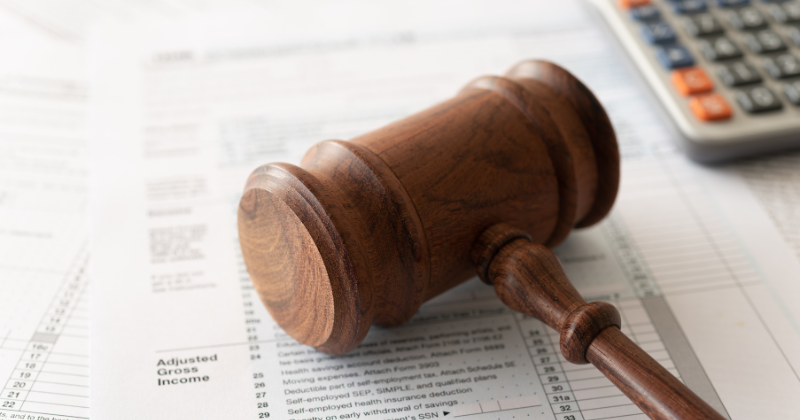1. Background
On 20th August 2024, the National Assembly published the Tax Procedures (Amendment) Bill, 2024, (the “Amendment Bill“), in the Kenya Gazette Supplement No. 165 (National Assembly Bills No. 43). The Amendment Bill aims to amend the Tax Procedures Act Cap 468B (the ‘‘TPA’’). Specifically, the Amendment Bill proposes changes to Section 37E, introduces a new Section 37F, and revises Section 77 of the TPA.
2. Proposed Amendment to Section 37E of the TPA on Reinstatement of Tax Amnesty
The Amendment Bill proposes the reinstatement of the tax amnesty that expired on 30th June 2024. This proposal was also contained in the withdrawn Finance Bill, 2024 after the third reading stage. The tax amnesty introduced in the withdrawn Finance Bill, 2024 proposed to extend the period for waiver of penalties and interests to taxpayers and to encourage those who had not paid principal tax by 30th June 2024 to pursue amnesty waiver of outstanding penalties and interest, so as to regularize their tax ledgers. The proposed amnesty period is to end on 30th June 2025.
Upon enactment of the Amendment Bill into law, taxpayers should take advantage of such amnesty and pay their principal tax due before 30th June 2025 to enjoy the waiver of penalties and interests on the principal taxes. We are happy to assist taxpayers in applying such tax amnesties.
3. Proposed insertion of a New Section 37F to the TPA on Abandonment of Taxes
The Amendment Bill also proposes the insertion of a new Section 37F to provide for “Relief due to doubt or difficulty in tax recovery.” This provision was also included in the withdrawn Finance Bill, 2024. It provides for circumstances when the Commissioner with the approval of Parliament can decide to abandon the recovery of tax due.
a. Circumstances for Abandonment of Tax Recovery
The Amendment Bill provides that a tax may be abandoned upon a determination that-
a) It may be impossible to recover an unpaid tax;
b) There is difficulty or expense in the recovery of an unpaid tax;
c) There is hardship or inequity in relation to the recovery of an unpaid tax;
d) Any other reason occasioning inability to recover the unpaid tax
b. Checks and balances to the Cabinet Secretary’s power to grant relief in doubtful or difficulty in recovering taxes
Previously, the Cabinet Secretary for Finance and National Planning had sole power to abandon tax recovery without Parliamentary oversight. In the Amendment Bill, there is a proposal to allow the Cabinet Secretary to grant relief on part or whole of the tax due from a taxpayer upon referral by the Commissioner. The Cabinet Secretary will then communicate such approved relief in writing to the Commissioner.
Further, the Amendment Bill proposes to allow the Cabinet Secretary to publish a notice in the Gazette at least every four (4) months of the names of taxpayers who have been granted relief, the reasons thereof and the amount of taxes to be abandoned. The notice should be placed before the National Assembly without unreasonable delay and a resolution may be made within twenty-one (21) days at the next sitting of the National Assembly. They may approve or annul the notice. The latter will void the Cabinet secretary’s decision to abandon the tax.
This proposal will now enhance transparency and accountability in exercising the power to abandon the recovery of tax owed to the government by a taxpayer.
4. Proposed Amendment to Section 77 on Computation of Time regarding Lodging of Objections and Appeals
The Amendment Bill proposes a crucial modification to Section 77 of the TPA, stipulating that, in computing the periods for lodging objections to the Commissioner under Sections 51, 52, 53, and 54, the days falling on a Saturday, Sunday, or a public holiday shall be excluded. This amendment directly impacts the timelines within which tax disputes will be concluded.
It is noteworthy, however, that the Memorandum of Objects and Reasons accompanying the Amendment Bill specifies that the amendment to Section 77 pertains to the computation of time for appeals to the Tax Appeals Tribunal, the High Court, and the Court of Appeal.
The drafting of the proposed amendment to section 77 of the TPA is problematic and requires redrafting. It is problematic because it is not clear whether the proposed computation of time only applies to lodging of objections to the Commissioner or it applies to all timelines specified in sections 51,52,53, and 54 of the TPA which relate to objections to tax decisions, appeals of “appealable decisions”, appeals to the High Court and appeals to the Court of appeal respectively.
The exclusion of weekends and public holidays from the computation of time effectively elongates the statutory periods for lodging objections and appeals. The proposal may lead to extended timelines for tax dispute resolution processes. This is particularly pertinent given that, under the existing tax laws, such days are not excluded in the computation of time.
5. Conclusion
It is noteworthy that the Amendment Bill seeks to reinstate the tax amnesty programme, give the Commissioner a checked power to allow for the abandonment of tax recovery and to change how time is computed in tax disputes. We are happy to assist you in the application of amnesty and resolving tax disputes without any delay caused by erroneous computation of statutory deadlines.
Please click here to download the alert.





